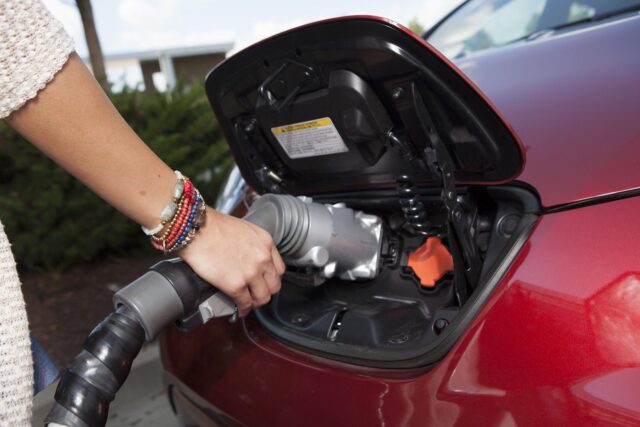
Whether taking a road trip with your friends, driving cross-state to visit relatives, or taking a journey to work, driving long distances can be a lot of fun. Many iconic drives, like Route 6 and the Pacific Coast Highway, can even be found on people’s bucket lists. There are, however, many dangers that you must be aware of when embarking on a long car journey. Driving vast distances can be physically and mentally draining. With more than six million crashes on American roads each year, it is vital to take every possible precaution.
Here are seven tips for driving long distances which will ensure you arrive at your destination safe and sound:
1. Make Sure You Are Well Rested

Long drives can be extremely tiring, both physically and mentally, and driving whilst tired is very, very dangerous as it can cause lapses in concentration and reduced reaction times. According to the National Highway Traffic Safety Administration, drowsy driving is the cause of 72,000 crashes a year, 800 of them fatal.
Make sure that you get as much sleep as possible in the nights leading up to your journey to ensure that you are fresh and well-rested. Relying on coffee or other supplements to keep you awake is no substitute as caffeine can affect your judgment and your temperament which may only increase the potential for an accident to occur.
2. Check Your Car Thoroughly Before Your Trip

As the old saying goes, “Failing to prepare is preparing to fail” so make sure that your car is in sound condition and is fit to complete the journey in good shape. The last thing you want is a breakdown in the middle of nowhere when there is no one within a hundred miles to come to your assistance. Even if the problem is something relatively minor that you can fix yourself like a fat tire, the time it will cost you to deal with the problem may ruin your plans.
An extra couple of hours waiting for a call-out service might mean you hit the rush hour traffic you were hoping to avoid or, worse still might encourage you to speed which could result in an accident.
3. Carefully Plan Your Rest Stops Before You Set Out
As noted above, maintaining your energy levels on a big car journey is vitally important to stay safe while you drive. As well as getting ample sleep preceding the journey, carefully planned regular rest stops will allow you to recharge your batteries. This will also help break up the monotony of a boring drive, or if you are on a particularly scenic route, it can be a good opportunity to stretch your legs and take in the scenery.
Try to plan your rest stops before you set out so that you are not driving along seeking a good place to stop as this may encourage drowsy driving. Another idea is to plan meal stops and to look up good places to eat before you leave. Regular rest stops will help ease the tension of any passengers in the car, in particular children who can become very restless on long journeys.
4. Bring Water And Snacks

Staving off hunger is another important way to help you remain focused and can also make the journey more enjoyable. Candy, fruit, and other snacks can keep you full between meal stops while a good supply of water is necessary to keep you hydrated and energized. Try to avoid too much soda as this can increase the need for bathroom stops, which may not always be practical depending on your route.
If there are some nice picnic places to stop along the way, pack a big lunch that you can enjoy en route. Keeping your energy levels up is key, and food and water, along with ample rest, are very important.
5. Don’t Rush
Be realistic with the amount of time it will take to drive your route and plan accordingly. If you underestimate the distance, it could result in a decision to speed which will greatly increase the potential of an accident occurring. Accidents occur shockingly often on long-distance journeys. As stated in an article by the folks over at Tate Law, in the state of Texas, which sees many long haul truckers driving through, one person is killed every two and a half hours.
Allow additional time for traffic or unforeseen incidents like road closures when you are planning your route. Factor in rest stops and time needed to stop for food or gas. Accept that the time it takes is the time it takes and don’t try to force the matter. As many as 50% of all accidents are caused by speeding or reckless driving. Take your time and enjoy the journey.
6. If You Have Children With You, Keep Them Entertained

Everybody has experienced the headache-inducing nightmare of a long drive with misbehaving kids. Being cooped up makes kids restless and this can cause arguments or other issues that could distract you or make you angry. Make sure that the kids have plenty to keep them entertained on the journey.
Books, iPads, and comics can all help to prevent boredom, as well as tasty snacks which will stop kids from getting hungry. As noted above, regular rest stops are very important to break up long journeys, especially for young children. Keep kids entertained as much as possible and cross your fingers that at some point they fall asleep.
7. Listen To Music And Mix It Up With Audiobooks And News

Music can be a great way to keep your energy up and will make the journey more enjoyable for everyone in the car. Make sure that you keep music volumes at a reasonable level so that the music doesn’t become a distraction and try to have a selection that pleases everyone in the car. For very long journeys, mix it up with some audiobooks or news to keep things interesting.
With careful planning, long journeys can be a great experience and far more than just a means to an end. It is vitally important to maintain your concentration and energy levels to ensure that you have a safe journey and following these seven tips is a great way to get started.







